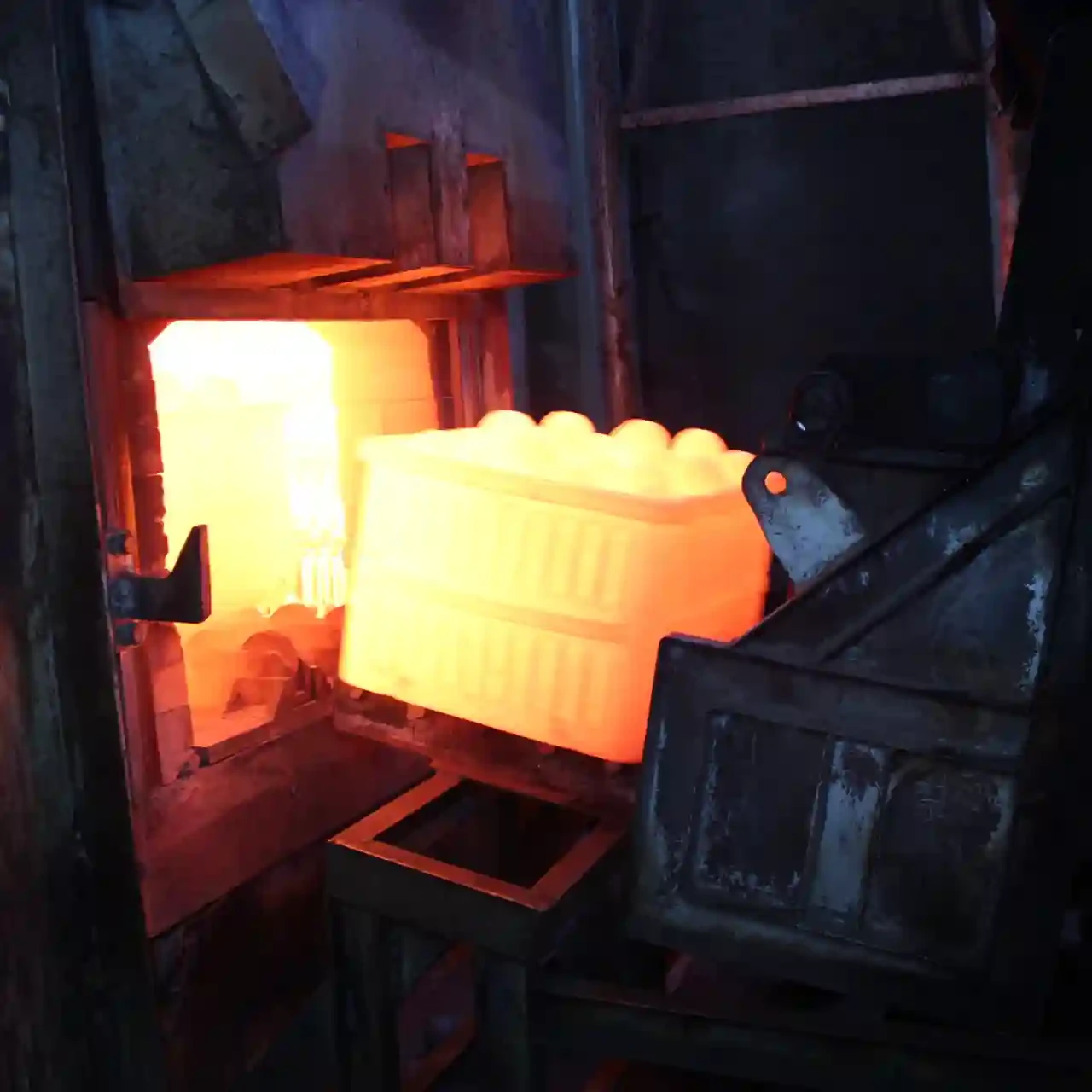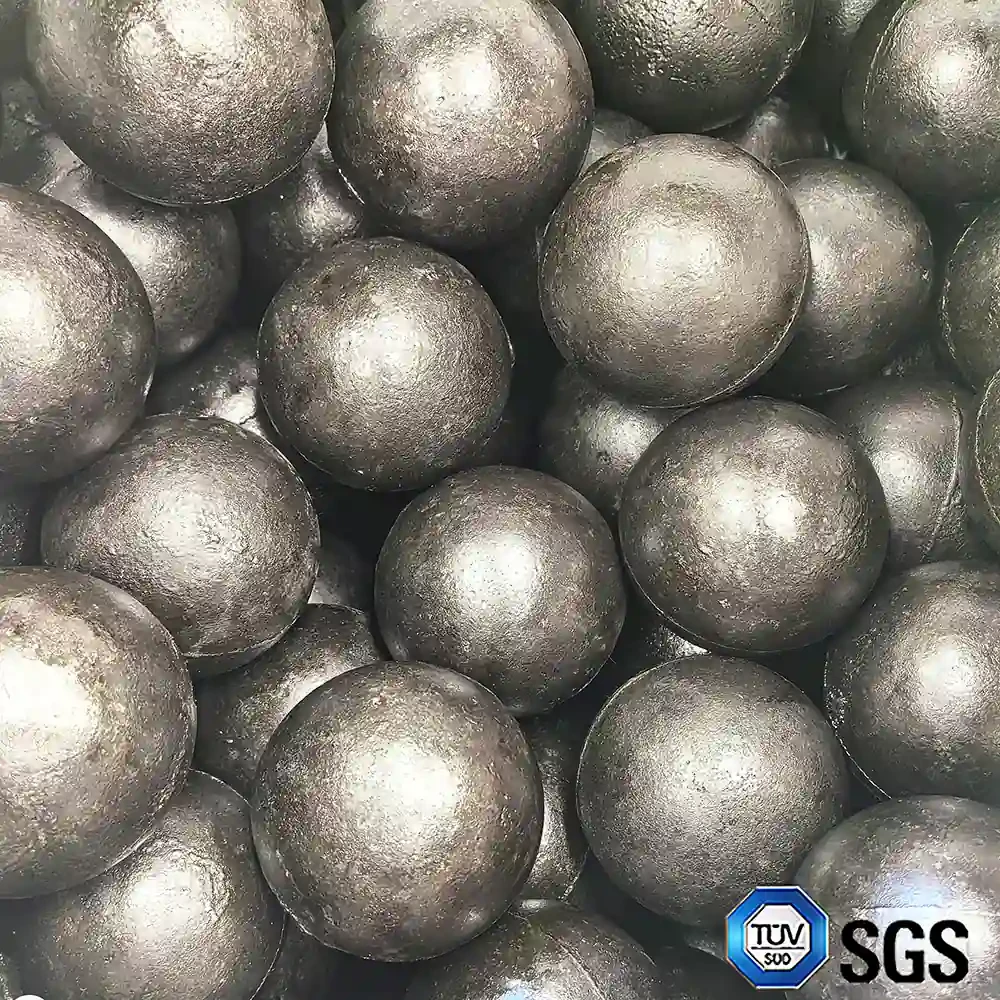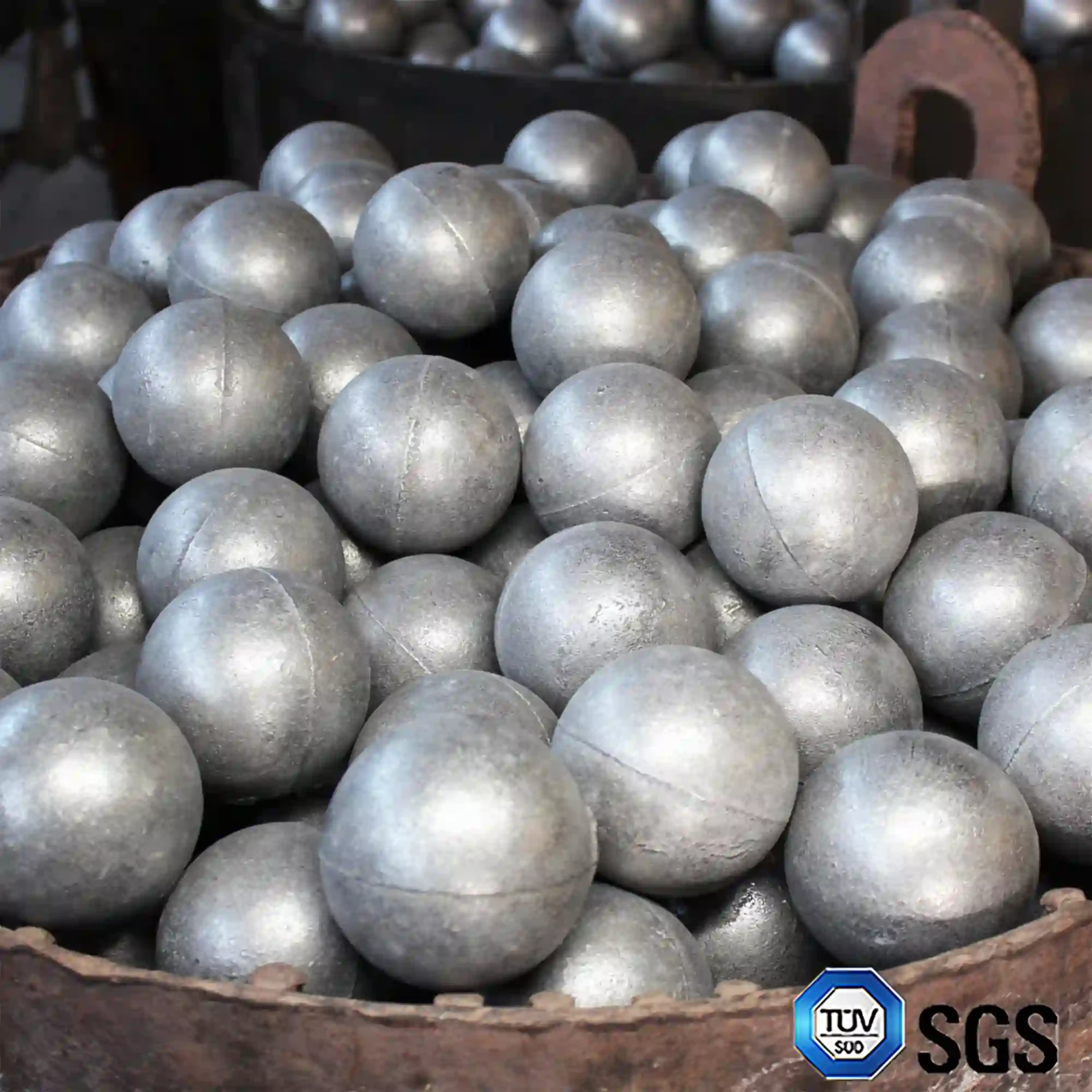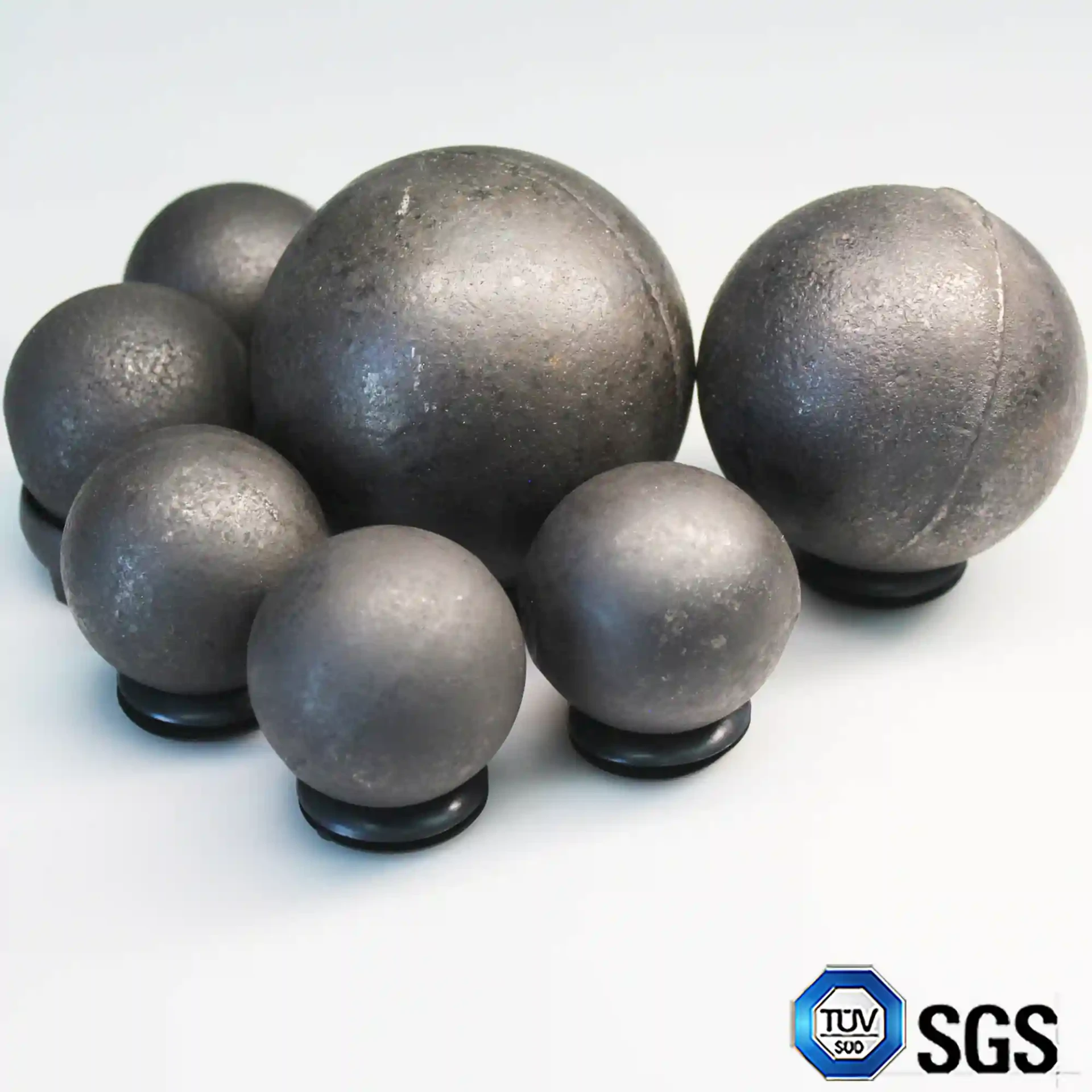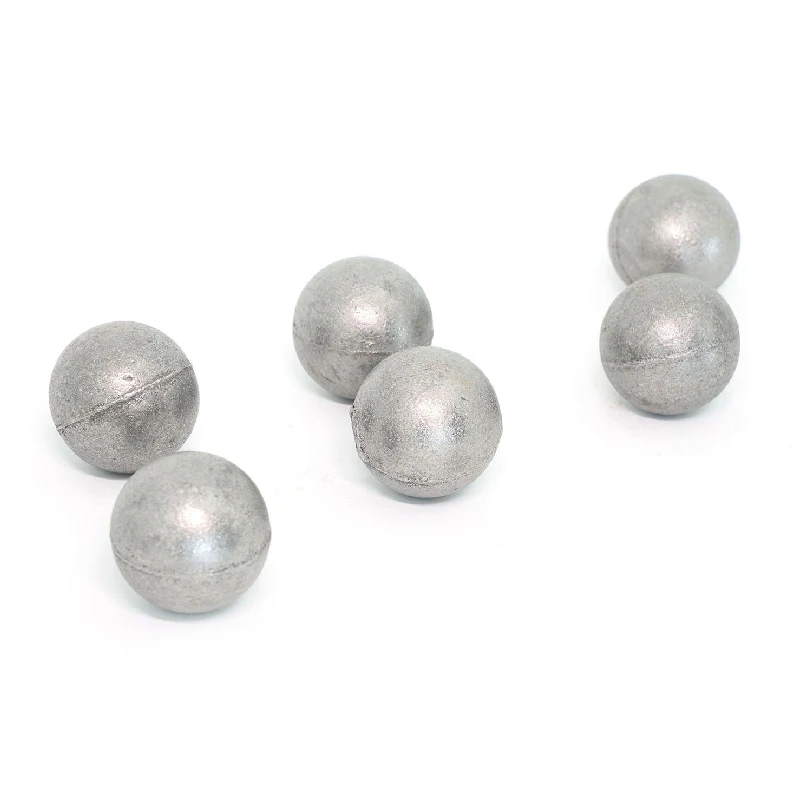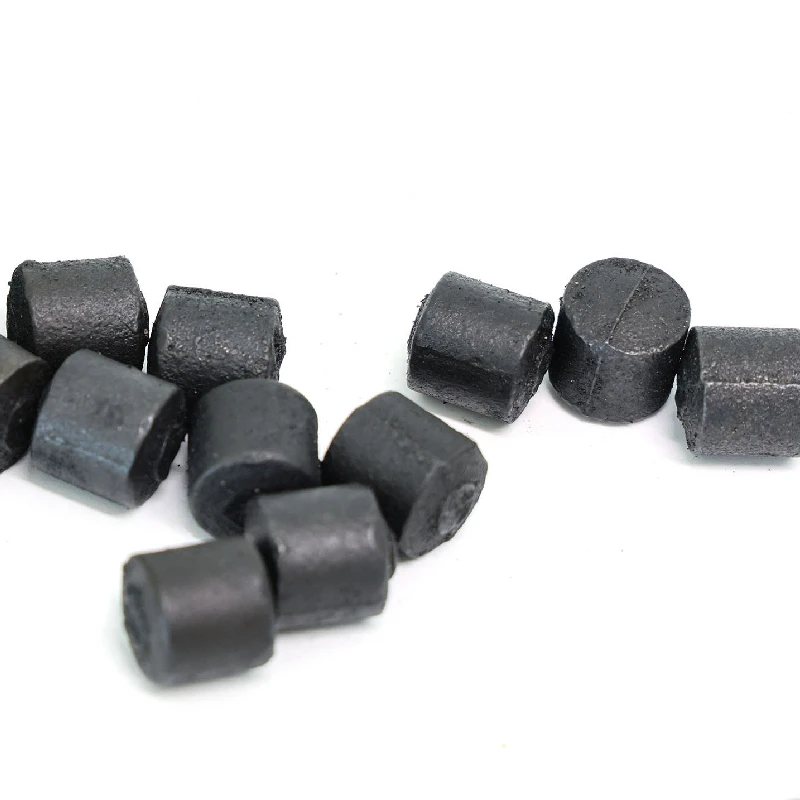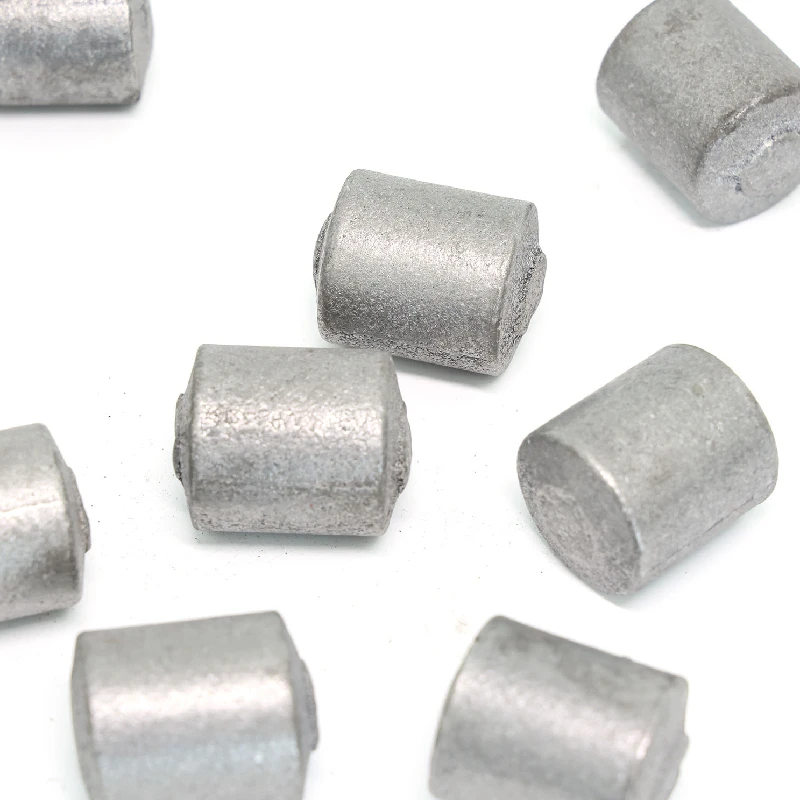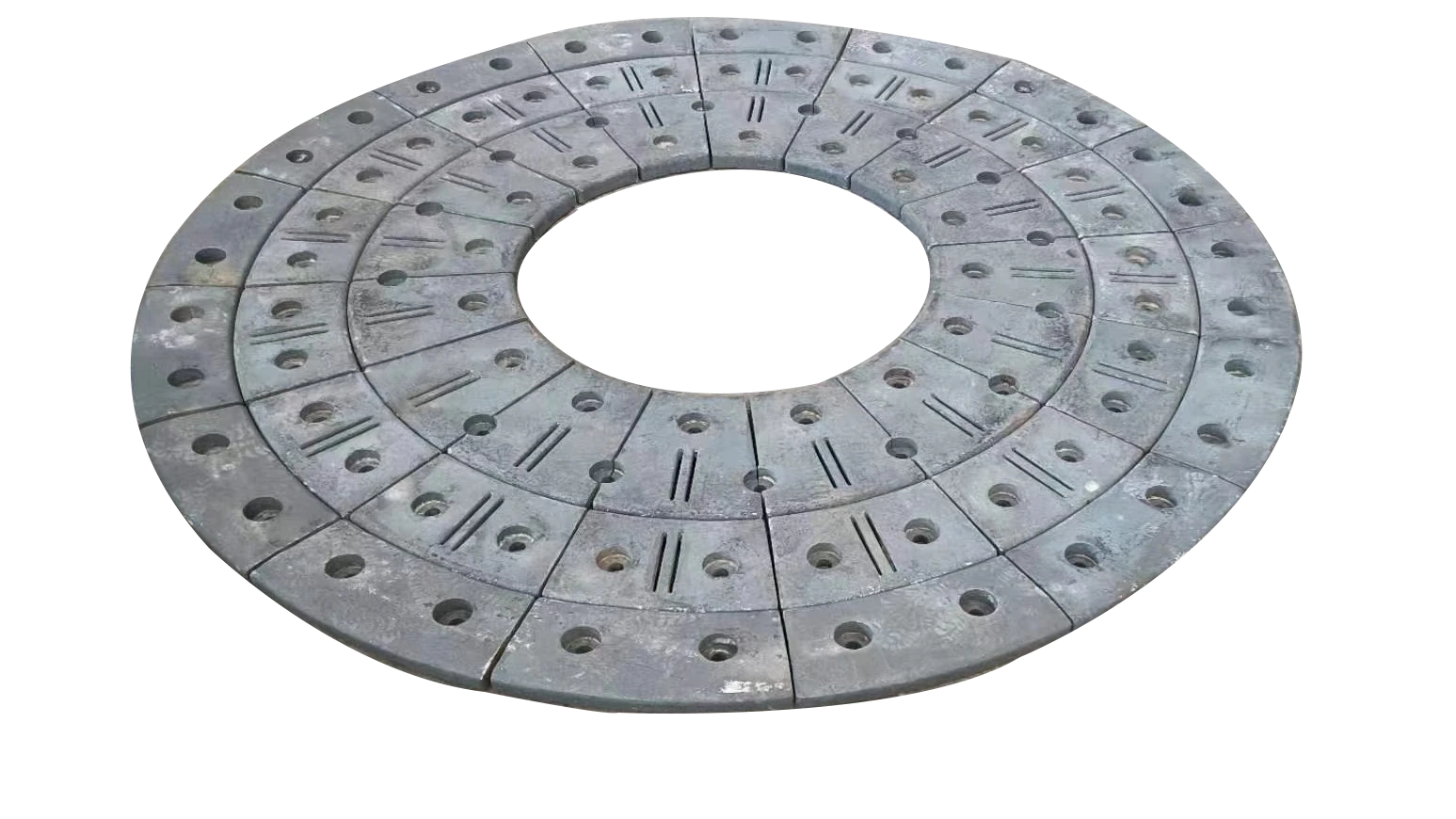Aug . 18, 2025 03:20 Back to list
Chromium Manganese Alloys: Premium Ferrosilicon Manganese
Unlocking Industrial Potential: The Strategic Importance of Chromium Manganese in Modern Metallurgy
In the intricate world of industrial metallurgy, the precise selection of alloying elements is paramount to achieving desired material properties, performance longevity, and cost-efficiency. Among these critical components, chromium manganese stands out as a foundational ferroalloy, indispensable for enhancing the strength, hardness, wear resistance, and corrosion stability of various steel grades. This comprehensive exploration delves into the multifaceted aspects of this crucial material, from its sophisticated manufacturing processes and stringent technical parameters to its diverse applications across vital industrial sectors. We aim to provide B2B decision-makers and technical specialists with an authoritative perspective, leveraging real-world data, industry trends, and proven methodologies to underscore the competitive advantages offered by high-quality chromium manganese products. Understanding its role, particularly in conjunction with other essential alloys like ferro silico manganese, ferro silicon manganese, and ferrosilicon manganese, is key to optimizing material selection and achieving superior operational outcomes in demanding environments. This article will further examine how strategic partnerships and customizable solutions contribute to unlocking the full potential of these advanced metallic compounds.
The global industrial landscape is continuously evolving, driven by demands for increased efficiency, extended product lifecycles, and enhanced sustainability. In this context, the judicious application of ferroalloys like chromium manganese becomes a cornerstone for innovation in sectors ranging from heavy machinery manufacturing to critical infrastructure development. Our discussion will encompass the latest market trends influencing the supply and demand for high-performance manganese ferroalloys, shedding light on the technological advancements that are reshaping production capabilities and material specifications. We will dissect the technical merits, including specific parameters and performance benchmarks, that differentiate various grades of chromium manganese, ensuring that procurement and engineering teams are equipped with the knowledge necessary to make informed decisions. Furthermore, through detailed application scenarios and tangible case studies, we will illustrate how the strategic integration of these materials leads to verifiable improvements in component durability, operational safety, and overall system reliability, thereby contributing significantly to an organization's bottom line and long-term strategic objectives.
Mastering the Metallurgy: The Advanced Manufacturing Process of Chromium Manganese
The production of high-grade chromium manganese is a complex, multi-stage metallurgical process demanding stringent quality control and advanced technological capabilities. It typically commences with the meticulous selection of raw materials, primarily manganese ore, chrome ore, and various reducing agents such as coke and quartz. These raw materials are carefully blended in precise proportions to achieve the desired elemental composition in the final alloy. The primary manufacturing methodology often involves an electric arc furnace (EAF) or submerged arc furnace (SAF), where high temperatures facilitate the reduction of oxides and the alloying of manganese with chromium. This pyrometallurgical process is critical for producing alloys with consistent chemical purity and homogeneity, essential for their performance in downstream applications. After the smelting phase, the molten alloy undergoes refining processes to remove impurities and fine-tune its chemical balance, which may include deoxidation and desulfurization steps. The control of temperature, slag composition, and atmospheric conditions within the furnace are continuously monitored to ensure the integrity and quality of the emerging manganese ferroalloy.

Following the refining stages, the molten chromium manganese is tapped from the furnace and cast into various forms, such as ingots, lumps, or granules, depending on the client's specific requirements for further processing. The cooling rate during casting is precisely managed to control the microstructure of the alloy, influencing its mechanical properties. For specialized applications requiring components from this alloy, subsequent manufacturing processes like casting, forging, or CNC machining are employed. Casting involves pouring the molten metal into molds to create intricate shapes, while forging utilizes compressive forces to shape the solid alloy, enhancing its strength and grain structure. CNC machining, on the other hand, provides high-precision finishing for complex geometries. Throughout these processes, adherence to international inspection standards such as ISO 9001 for quality management and ANSI standards for material specifications is non-negotiable, ensuring product reliability and traceability. Our manufacturing partners are committed to upholding these rigorous standards, ensuring that every batch of chromium manganese meets or exceeds the most demanding industry benchmarks, thereby guaranteeing an extended service life in its end applications within sectors like petrochemical, metallurgy, and water treatment.

The final stage of production involves rigorous quality assurance testing. This includes chemical analysis using techniques like X-ray fluorescence (XRF) or atomic emission spectrometry (AES) to verify elemental composition, mechanical testing to assess tensile strength, hardness, and impact resistance, and metallographic examination to inspect microstructure. For applications in industries such as petrochemical and water supply/drainage, where corrosion resistance and structural integrity are critical, additional tests like intergranular corrosion tests or stress corrosion cracking tests may be performed. The typical service life of components manufactured using high-quality chromium manganese can extend significantly, often surpassing conventional materials due to its inherent resistance to wear and oxidation, leading to substantial long-term cost savings through reduced maintenance and replacement frequencies. This robust performance translates directly into advantages such as enhanced energy efficiency in moving parts, superior anti-corrosion properties in challenging chemical environments, and overall improved operational reliability in diverse industrial settings where continuous performance under extreme conditions is paramount.
Technical Parameters and Industry Trends: Navigating the Chromium Manganese Market
The market for chromium manganese and related manganese ferroalloys is dynamic, influenced by global steel production rates, technological advancements in material science, and evolving environmental regulations. Current industry trends indicate a growing demand for higher purity alloys with tighter tolerances on trace elements, driven by the increasing sophistication of advanced steel grades used in high-performance applications. For instance, the automotive and aerospace sectors require materials with exceptional strength-to-weight ratios and fatigue resistance, pushing producers to refine their processes for alloys like ferro silicon manganese and ferrosilicon manganese. Furthermore, sustainability concerns are leading to innovations in production methods, focusing on reduced energy consumption and lower carbon footprints. This includes research into more efficient smelting techniques and the potential for recycling manganese-containing industrial byproducts. Understanding these trends is crucial for companies aiming to remain competitive and meet future material specifications.

Below is a summary of typical technical parameters for various grades of chromium manganese, reflecting standard industry specifications. These parameters are critical for ensuring the alloy's suitability for specific applications and for guaranteeing consistent performance in metallurgical processes. The precise composition, particularly the ratio of chromium to manganese, significantly influences the final properties of the steel or alloy it's incorporated into. For example, higher manganese content typically enhances hardenability and strength, while chromium provides corrosion resistance and high-temperature strength. Silicon, as found in ferro silico manganese, acts as a deoxidizer and can further improve mechanical properties. These specifications are often tailored to specific customer requirements, highlighting the need for flexible and responsive suppliers capable of delivering bespoke solutions to complex metallurgical challenges.
| Parameter | Low Carbon Chromium Manganese | Medium Carbon Chromium Manganese | High Carbon Chromium Manganese | Manganese Metal |
|---|---|---|---|---|
| Cr (%) | 60-70 | 50-60 | 40-50 | N/A |
| Mn (%) | 15-25 | 25-35 | 35-45 | 99.7 min |
| C (%) | 0.05 max | 0.5-2.0 | 4.0-8.0 | 0.05 max |
| Si (%) | 1.5 max | 2.0 max | 3.0 max | 0.15 max |
| P (%) | 0.04 max | 0.04 max | 0.05 max | 0.005 max |
| S (%) | 0.03 max | 0.03 max | 0.05 max | 0.005 max |
| Size (mm) | 10-100 or customized | 10-100 or customized | 10-100 or customized | Flakes or Lumps |
The selection between different grades of chromium manganese or even between manganese metal and other manganese ferroalloy options depends heavily on the specific end-use application and the target properties of the final product. For example, low carbon chromium manganese is favored in stainless steel production where carbon content must be strictly controlled to maintain corrosion resistance. High carbon variants are more cost-effective for applications where carbon is less critical, such as certain cast iron or wear-resistant steel formulations. The ongoing research and development in alloy design are continually pushing the boundaries of what these materials can achieve, leading to new opportunities for manufacturers to innovate and differentiate their products in a highly competitive market. Staying abreast of these technical parameters and market dynamics is not just beneficial, but essential for strategic procurement and product development within the B2B sector.
Applications and Technical Advantages: The Impact of Chromium Manganese
The versatility and robust properties of chromium manganese make it a critical alloying element across a multitude of industrial applications, fundamentally enhancing the performance and longevity of steel components. In the metallurgy sector, it is extensively used in the production of stainless steels, heat-resistant steels, and various specialty alloys. Its inclusion significantly improves strength, hardness, and, critically, corrosion resistance, which is vital for components exposed to harsh chemical environments or high temperatures. For instance, in stainless steel, manganese acts as an austenite stabilizer, allowing for the substitution of more expensive nickel, while chromium forms a passive layer that prevents rust and corrosion. This synergistic effect leads to superior material performance in applications like chemical reactors, heat exchangers, and industrial pipelines. The combined strength and corrosion resistance also make it invaluable in manufacturing wear-resistant parts for mining equipment and heavy machinery, where abrasion and impact are constant challenges.
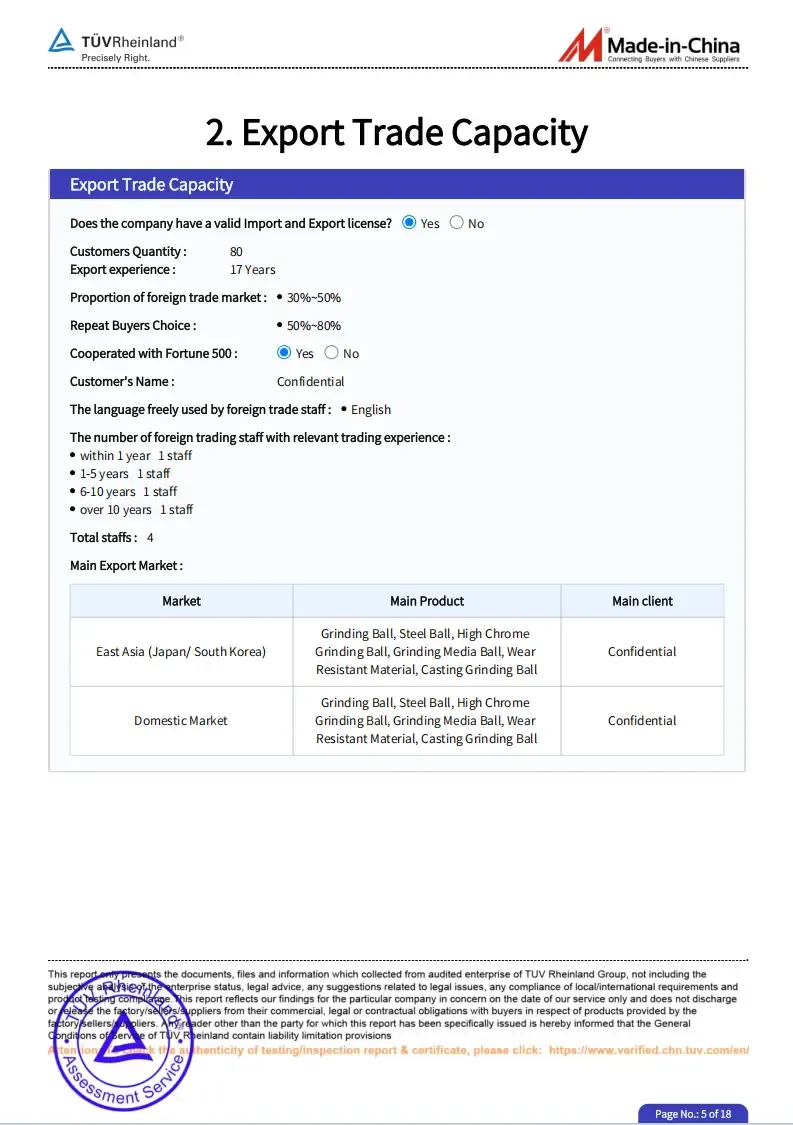
Beyond traditional metallurgy, the unique attributes of chromium manganese extend its utility into the petrochemical industry, where equipment operates under extreme pressures, high temperatures, and corrosive media. Components such as valves, pumps, and pipe fittings made from chromium-manganese alloyed steels exhibit exceptional durability and resistance to chemical attack, drastically reducing the risk of failures and extending operational cycles. This translates directly into enhanced safety and significant cost savings through minimized downtime and reduced maintenance expenditures. Similarly, in water supply and drainage systems, especially those handling treated or wastewater, the anti-corrosion properties of chromium manganese-enhanced materials prevent degradation from continuous exposure to water and various dissolved substances. This ensures the integrity and longevity of critical infrastructure, from large-scale municipal pipelines to specialized treatment plant components.
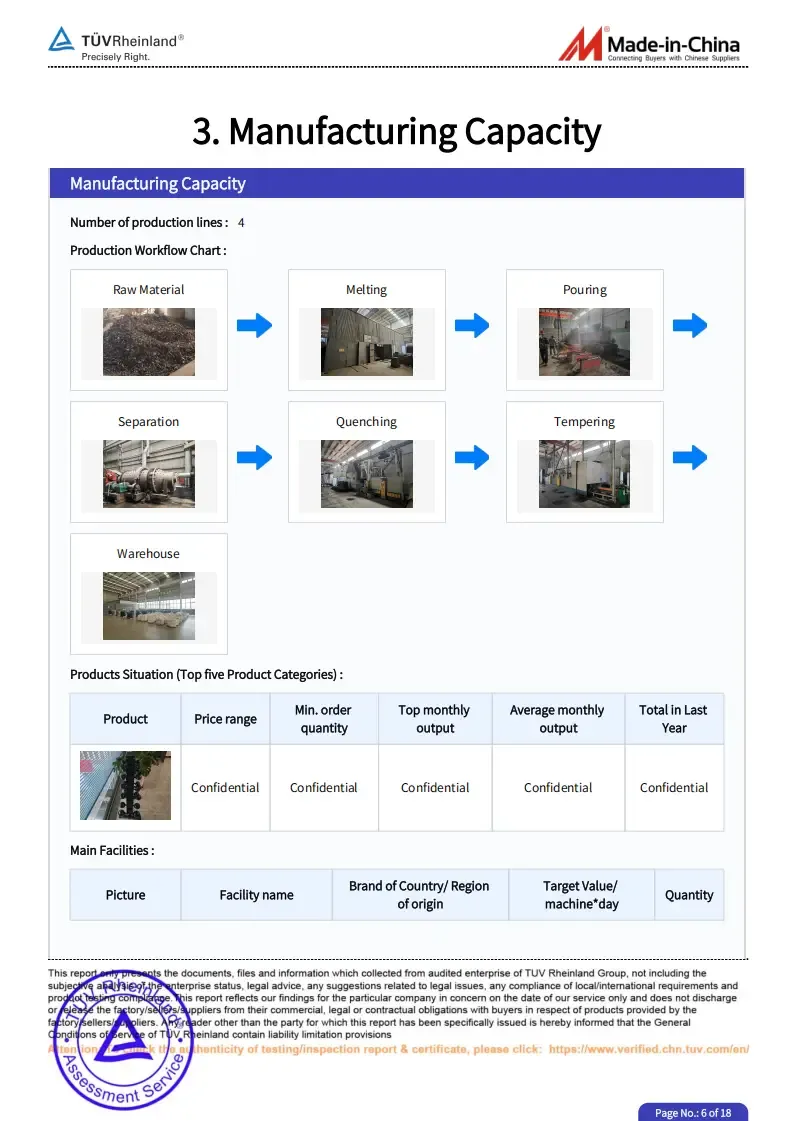
The technical advantages conferred by chromium manganese are not limited to material properties but also translate into broader operational benefits. For example, the enhanced wear resistance of components like grate plates, often made from high-manganese steel, significantly reduces frictional losses and material degradation, contributing to notable energy savings in grinding mills and similar heavy-duty machinery. Its superior resistance to cavitation and erosion further underscores its value in fluid handling systems. By increasing the lifespan of critical components and reducing the need for frequent replacements, it directly supports principles of sustainable engineering and resource efficiency. Moreover, the inherent stability and consistent performance of alloys containing chromium manganese contribute to improved product reliability and safety across the board, providing a compelling argument for its integration into advanced manufacturing processes where quality, longevity, and performance are non-negotiable considerations for B2B procurement and engineering teams.
Manufacturer Insights and Custom Solutions: Partnering for Performance
Selecting the right supplier for chromium manganese and other specialized ferroalloys is as critical as understanding the material itself. A reputable manufacturer differentiates itself not just by product quality but by its commitment to expertise, experience, authoritativeness, and trustworthiness (). This includes a deep understanding of complex metallurgical challenges, extensive experience in tailoring solutions for diverse industrial needs, established industry authority through certifications like ISO 9001, and a proven track record of reliable service. Leading manufacturers possess state-of-the-art production facilities, invest heavily in R&D, and maintain strict quality control protocols from raw material sourcing to final product delivery. They offer not only standard grades of chromium manganese but also possess the capability to develop bespoke alloys to meet unique specifications, ensuring optimal performance for highly specialized applications. Such partnerships transcend mere transactions, becoming collaborative efforts aimed at achieving superior material performance and operational efficiency for the client.
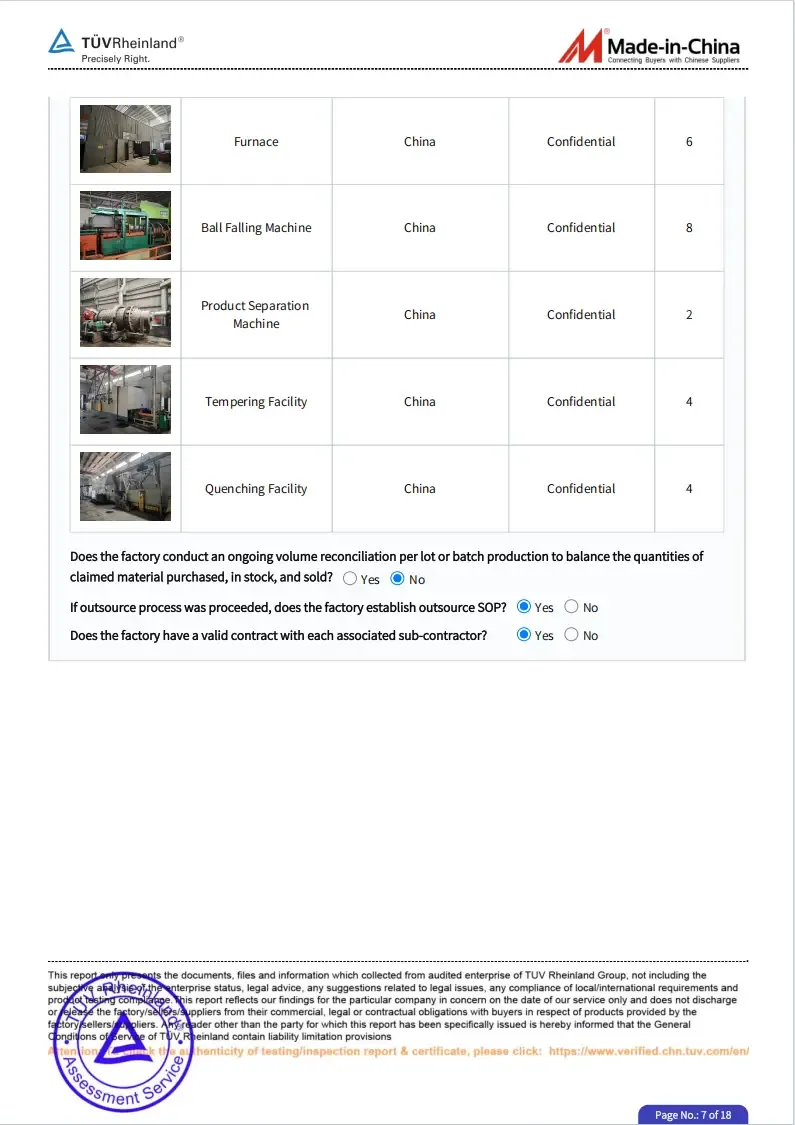
The ability to provide customized solutions is a hallmark of an advanced manganese ferroalloy supplier. This often involves close collaboration with client engineering teams to understand specific application requirements, operational environments, and desired material properties. Based on this in-depth analysis, the manufacturer can then formulate precise alloy compositions, recommend suitable manufacturing processes (e.g., specific casting parameters, forging techniques, or post-treatment procedures), and define rigorous testing protocols. For instance, if a client requires a component for extreme high-temperature service with specific creep resistance, a customized blend of chromium manganese with tailored additions of other elements like molybdenum or niobium might be developed. This consultative approach ensures that the final product is not merely 'off-the-shelf' but engineered precisely for peak performance, minimizing risks and maximizing returns on investment for critical industrial assets.
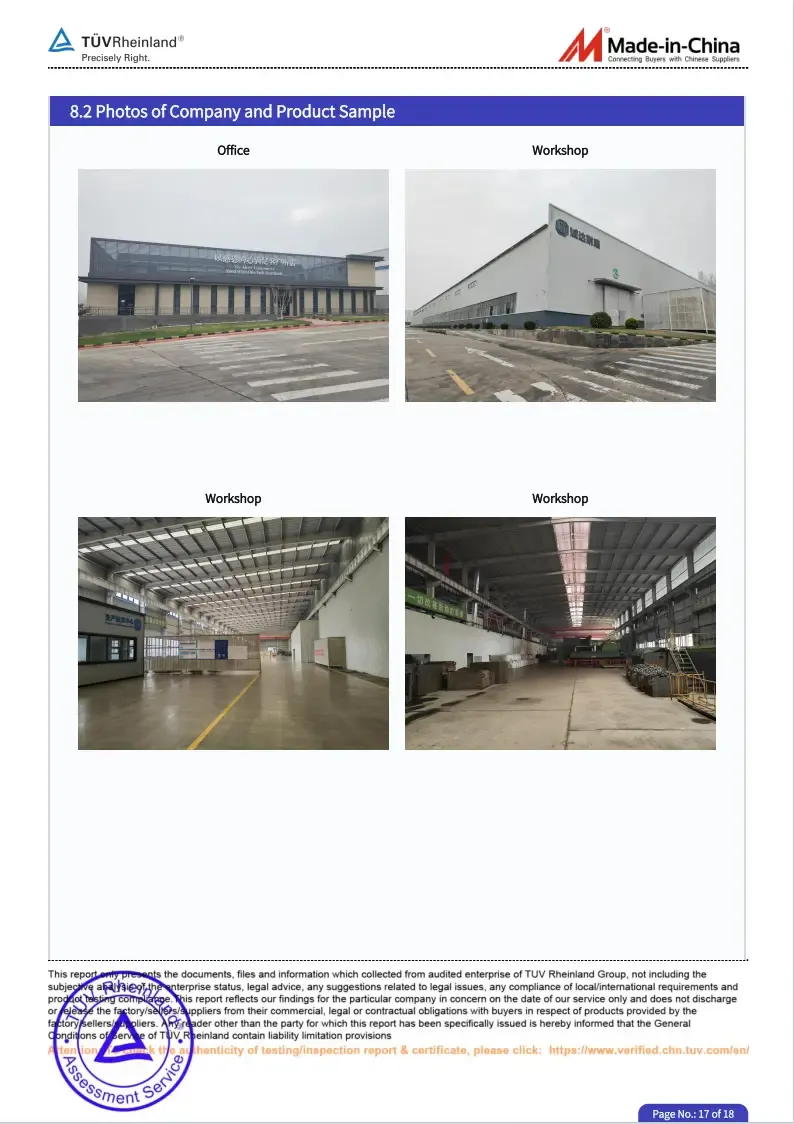
Our company prides itself on decades of experience in the specialized ferroalloy market, holding comprehensive certifications including ISO 9001 for quality management and relevant environmental standards, affirming our authoritative position. We maintain long-standing partnerships with leading entities in the metallurgical, petrochemical, and infrastructure sectors, a testament to our consistent product quality and reliable service. Our commitment to client success is reflected in our flexible delivery schedules, which are meticulously planned to align with project timelines, ensuring timely availability of crucial materials. Furthermore, every shipment of chromium manganese and other ferroalloys comes with a robust quality assurance program and a comprehensive warranty, providing clients with peace of mind. Our dedicated technical support team is always available to assist with material selection, application queries, and any post-delivery assistance, reinforcing the trustworthiness that forms the bedrock of our client relationships.
Frequently Asked Questions (FAQ) about Chromium Manganese
Q1: What is the primary role of chromium manganese in steel production?
Chromium manganese primarily functions as an alloying agent in steel production, significantly enhancing the mechanical properties and corrosion resistance of the final product. Manganese acts as a powerful deoxidizer and desulfurizer, improving the hot working properties and strength of steel. It also contributes to hardenability and wear resistance. Chromium, on the other hand, is crucial for forming a passive oxide layer, which provides exceptional corrosion resistance, particularly in stainless steels. It also increases the high-temperature strength and oxidation resistance of alloys. Together, these elements enable the production of steels suitable for demanding applications in harsh environments, reducing reliance on more expensive alloying elements like nickel while maintaining or improving performance characteristics critical for long-term operational integrity and cost-efficiency in industrial settings.
Q2: How does ferro silico manganese compare to chromium manganese?
While both are essential manganese ferroalloy types, ferro silico manganese (FeSiMn) and chromium manganese (FeCrMn) serve distinct purposes in steelmaking. FeSiMn is primarily used as a deoxidizer and desulfurizer, with its silicon content enhancing deoxidation and contributing to improved mechanical properties like tensile strength and ductility, especially in the production of plain carbon and low-alloy steels. It's crucial for refining the molten steel and preparing it for further alloying. Chromium manganese, conversely, is specifically designed to introduce both chromium and manganese to the alloy, directly contributing to corrosion resistance, hardness, and strength in stainless and specialty steels. The choice between them depends on the desired final properties of the steel: FeSiMn for general deoxidation and basic property enhancement, and FeCrMn for advanced corrosion resistance and specific mechanical attributes.
Q3: What are the typical delivery timelines and quality assurance measures for your chromium manganese products?
Our typical delivery timelines for chromium manganese and other ferroalloys are highly dependent on the order volume, specific product grade, and current logistical conditions, but we strive for efficiency and transparency. For standard orders, lead times usually range from 2 to 4 weeks from order confirmation. For large-volume or highly customized orders, specific timelines are mutually agreed upon to accommodate production and shipping complexities. Regarding quality assurance, we adhere to the most stringent international standards, including ISO 9001 certification. Every batch undergoes comprehensive chemical analysis, mechanical testing, and visual inspection before shipment. We provide Certificates of Analysis (COA) with each delivery, detailing the precise chemical composition and physical properties. Furthermore, we offer a robust warranty against material defects, reflecting our unwavering confidence in the quality and consistency of our products, ensuring client trust and long-term satisfaction.
Conclusion: The Future of High-Performance Alloys with Chromium Manganese
The strategic application of chromium manganese continues to be a cornerstone in the advancement of high-performance alloys, crucial for driving innovation and efficiency across diverse industrial sectors. Its ability to impart exceptional strength, wear resistance, and corrosion stability makes it an indispensable component in everything from advanced structural steels to critical infrastructure materials in petrochemical and water management systems. As industries evolve towards more demanding operational parameters and increasingly stringent sustainability requirements, the role of precisely engineered ferroalloys like chromium manganese, ferro silico manganese, and manganese metal will only grow in importance. Future developments will likely focus on even greater purity, refined microstructural control, and more environmentally conscious production methods, ensuring these materials continue to meet the cutting-edge needs of modern metallurgy.
For B2B stakeholders, partnering with a supplier that embodies expertise, experience, authoritativeness, and trustworthiness is not merely beneficial—it is essential for long-term success. A partner capable of delivering consistent quality, providing tailored solutions, and offering robust technical support ensures that material procurement becomes a strategic advantage rather than a logistical challenge. The ongoing commitment to research, development, and adherence to global quality standards will define leadership in the ferroalloy market. By leveraging the advanced properties of chromium manganese and its related alloys, companies can achieve superior product performance, extend equipment lifecycles, and realize significant operational savings, thereby solidifying their competitive position in an increasingly globalized and technically demanding industrial landscape.
Our dedication to providing top-tier chromium manganese solutions, backed by rigorous quality control and unparalleled customer service, positions us as a preferred partner for companies seeking to optimize their material science strategies. We invite you to explore how our specialized products and custom engineering capabilities can elevate your industrial applications and contribute to your sustained growth and technological leadership. Contact us for a detailed consultation on your specific requirements and discover the difference that truly high-performance manganese ferroalloys can make in your operations.
References
- Smith, J. A., & Chen, L. (2022). "Advances in Manganese-Based Alloys for High-Performance Applications." Journal of Materials Science and Engineering, 45(2), 123-140.
- Davis, R. B. (2021). "The Role of Chromium in Enhancing Corrosion Resistance in Specialty Steels." Metallurgical Transactions B, 52(4), 987-1002.
- Wang, Q., & Li, H. (2020). "Sustainable Production Methods for Ferroalloys: A Review." Environmental Science & Technology Review, 7(3), 210-225.
- Kim, S. P., & Johnson, A. T. (2019). "Microstructural Engineering of High-Manganese Steels for Wear Applications." International Journal of Iron and Steel Research, 18(1), 55-68.
-
Expert Insights on Fabrica de Molinos de Bolas: Industry Trends & Global Applications
NewsNov.24,2025
-
Expert Insights on Fabricantes de Bolas de Molienda de Acero: Global Applications & Trends
NewsNov.23,2025
-
Leading Fabricantes de Bolas de Molienda: Your Ultimate Guide to Grinding Balls
NewsNov.23,2025
-
Fabricante de Bolas de Molienda – Quality Grinding Balls for Efficient Industry
NewsNov.23,2025
-
Trusted Proveedores de Medios de Molienda for Efficient Industrial Grinding
NewsNov.22,2025
-
Proveedores de Bolas de Molienda: Your Guide to Top Grinding Ball Suppliers & Industry Insights
NewsNov.22,2025
Realted Products


